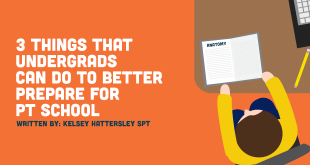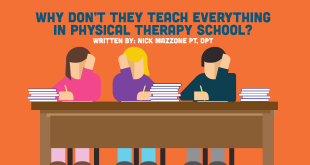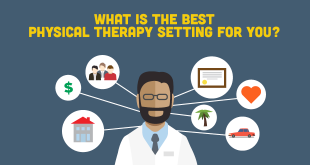Graduate school often conjures images of intellectual pursuit, academic excellence, and promising career opportunities. However, beneath this veneer lies a reality that is far from glamorous. Let's delve into some of the most pressing questions about why "grad school isn't glamorous" and uncover what lies beneath the surface.
FAQ: 10 Most Asked Questions About Why "Grad School Isn't Glamorous"
1. Is graduate school as glamorous as it seems?
Myth vs. Reality: The Truth About Graduate School
When you first envision graduate school, you might picture stimulating discussions, groundbreaking research, and esteemed professors guiding you toward academic greatness. While these elements do exist, the day-to-day reality is much more complex.
The Unvarnished Truth
-
Intense Workloads: Graduate programs demand immense dedication and time commitment. Long hours spent reading, researching, and writing are common.
-
Financial Strain: Many graduate students face financial challenges, including tuition costs, living expenses, and limited funding opportunities.
-
Emotional Toll: Balancing academic demands with personal life can lead to stress, anxiety, and feelings of isolation.
Breaking Down the Glamour
| Glamour Perception | Reality Check |
|---|---|
| Intellectual Stimulation | Often comes with high stress levels and pressure to perform. |
| Prestige and Recognition | Grad school can be isolating and competitive. |
| Career Advancement | Success requires persistence through challenges and setbacks. |
The Takeaway
While graduate school offers invaluable learning experiences and career opportunities, it's essential to acknowledge the less glamorous aspects. Understanding these realities can better prepare you for the journey ahead.
2. How do graduate students cope with the challenges of "un-glamorous" aspects?
Strategies for Navigating the Challenges
Graduate students navigate the complexities of "un-glamorous" grad school life through various strategies and support systems.
Practical Coping Mechanisms
-
Time Management: Effective scheduling and prioritization help manage heavy workloads.
-
Financial Planning: Budgeting and seeking funding opportunities alleviate financial stress.
-
Social Support: Building a network of peers and mentors provides emotional support and guidance.
Psychological Resilience
| Challenges | Coping Strategies |
|---|---|
| High Workload | Break tasks into manageable segments. |
| Financial Stress | Seek part-time work or apply for scholarships. |
| Emotional Strain | Engage in self-care practices and seek counseling if needed. |
Institutional Support
Many universities offer resources such as counseling services, academic workshops, and financial aid offices to assist graduate students in coping with challenges.
Embracing the Journey
While not always glamorous, graduate school fosters personal growth, resilience, and academic achievement. By embracing challenges and leveraging support systems, students can thrive despite the realities of the journey.
3. What are some misconceptions about graduate school that contribute to its perceived glamour?
Debunking Common Misconceptions
Graduate school myths perpetuate the idea of glamour while overlooking its complexities and challenges.
Misconceptions vs. Realities
-
Myth: All About Intellectual Pursuit
Reality: Balances intellectual growth with practical challenges like funding and time management. -
Myth: Guaranteed Career Success
Reality: Success requires persistence, networking, and navigating competitive job markets. -
Myth: Always Stimulating and Engaging
Reality: Includes mundane tasks, setbacks, and moments of self-doubt.
Rethinking Perceptions
| Misconception | Reality Check |
|---|---|
| Glamorous Pursuit | Demands perseverance through challenges. |
| Intellectual Elite | Involves practical skills and adaptability. |
| Career Launchpad | Requires strategic planning and resilience. |
Shifting Perspectives
By challenging misconceptions, graduate students can approach their academic journey with a balanced perspective, embracing both its rewards and challenges.
What is PT social media anxiety?
PT social media anxiety refers to the psychological stress and discomfort experienced by individuals when engaging with social media platforms like Facebook, Twitter, Instagram, and TikTok. It specifically relates to the pressures, comparisons, and negative emotions that arise from using these platforms, leading to heightened anxiety levels.
Frequently Asked Questions About PT Social Media Anxiety
Here are ten of the most commonly asked questions about PT social media anxiety:
- What are the main symptoms of PT social media anxiety?
- How does social media contribute to PT social media anxiety?
- Who is most at risk of developing PT social media anxiety?
- What strategies can help manage PT social media anxiety?
- Is PT social media anxiety a recognized psychological condition?
- Can PT social media anxiety lead to other mental health issues?
- Are there specific demographics more affected by PT social media anxiety?
- What role does peer influence play in PT social media anxiety?
- How can parents help teenagers cope with PT social media anxiety?
- Are there any positive aspects of social media use despite PT social media anxiety?
What are the main symptoms of PT social media anxiety?
PT social media anxiety manifests through various emotional and behavioral symptoms that can significantly impact an individual's well-being. Here’s a detailed look at the common symptoms associated with this condition:
Emotional Symptoms:
- Increased Stress: Feeling overwhelmed or stressed when using social media platforms.
- Fear of Missing Out (FOMO): Constantly feeling like others are having more enjoyable experiences.
- Comparison Anxiety: Continuously comparing one's life and achievements to those portrayed on social media.
- Depression: Feeling sad or hopeless due to negative interactions or comparisons online.
Behavioral Symptoms:
- Excessive Checking: Frequently refreshing feeds or checking notifications.
- Social Withdrawal: Avoiding social interactions in real life due to negative experiences online.
- Procrastination: Spending excessive time on social media at the expense of other responsibilities.
- Sleep Disturbances: Disrupted sleep patterns due to late-night social media use.
Physical Symptoms:
- Muscle Tension: Experience of physical tension or discomfort, especially when viewing stressful content.
- Headaches: Increased frequency of headaches due to prolonged screen time and stress.
- Digestive Issues: Some individuals may experience digestive problems related to stress and anxiety.
Cognitive Symptoms:
- Negative Self-Talk: Engaging in self-critical thoughts based on comparisons with others online.
- Difficulty Concentrating: Finding it hard to focus on tasks or conversations due to distractions from social media.
- Memory Issues: Forgetfulness or lapses in memory attributed to divided attention between online and offline activities.
Interpersonal Symptoms:
- Conflict in Relationships: Misunderstandings or arguments stemming from miscommunication or oversharing on social media.
- Isolation: Feeling disconnected from others or struggling to maintain meaningful relationships outside of social media.
Impact on Well-being:
PT social media anxiety can significantly impact overall mental health and well-being if left unmanaged. It may exacerbate existing conditions like anxiety disorders or depression, leading to a cycle of negative thoughts and behaviors. Recognizing these symptoms early on and implementing strategies to manage social media use can help mitigate the adverse effects on mental health.
In summary, PT social media anxiety encompasses a range of emotional, behavioral, physical, cognitive, and interpersonal symptoms that stem from using social media platforms. Understanding these symptoms is crucial for individuals looking to manage their online experiences effectively and prioritize mental health in a digital age.
 NewGradPhysicalTherapy.com The Largest Online Resource For New Grad Physical Therapists
NewGradPhysicalTherapy.com The Largest Online Resource For New Grad Physical Therapists






